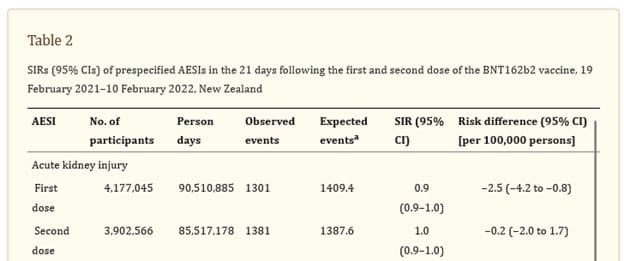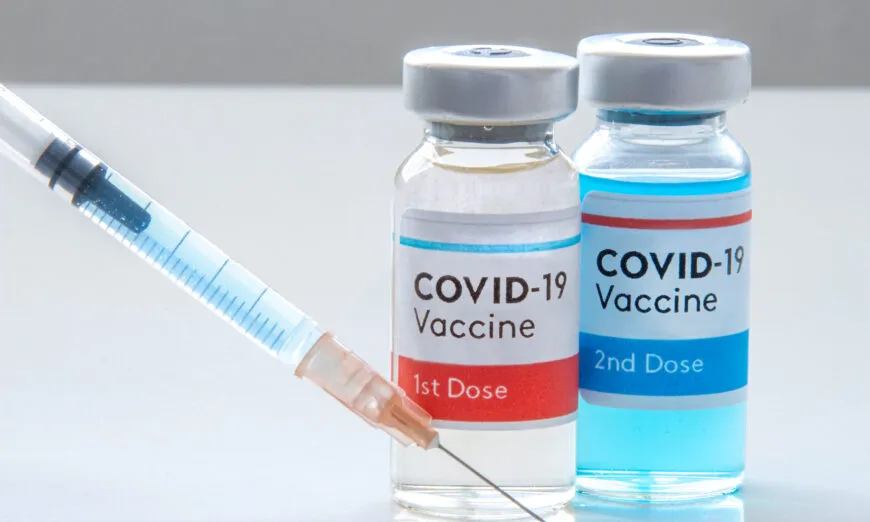Table of Contents
New Zealand Doctors Speaking Out with Science
Once again, we have reasons to be concerned about the integrity of New Zealand research.
The series of events around the New Zealand Covid vaccine adverse events study have once again highlighted the lengths to which those who wish to deceive the population will go. History shows us that the reasons for deceptive research include corruption, willful blindness, incompetence, self-defense (butt covering), and even the unthinkable – intent to injure. We have not yet uncovered the reasons here, but the more deception is brought to light, the sooner we will have answers.
To alert overly trusting people to their jeopardy, we highlight two studies which seem to speak of orchestrated deception. The circumstances around both of these studies have been revealed by sharp-eyed scientists and published on their Substacks.
The New Zealand Adverse Events Study
Dr Colleen Huber, a US-based Naturopathic Medical Doctor, has had her medical research published in mainstream medical journals such as the Lancet and the Cancer Strategies Journal. She has recently published an article on her Substack outlining how New Zealand researchers seemingly changed data in a study looking at 12 different adverse events of special interest (AESI). For those wanting the details, it makes for jaw-dropping reading. Dr Huber highlights one category of these adverse events, those affecting the renal system, where the data seems to have changed significantly.
In a nut-shell, the study was undertaken by the Ministry of Health and used data from the Covid Immunisation Register which consisted of over four million people, aged over five, who had received the injections from the 19th of February 2021 to the 10th of February 2022 and who subsequently presented to hospital with any one of 12 different conditions. In this article, Dr Huber looks at kidney effects.
The study was originally published as a Lancet preprint in January 2023. One of the outcomes reached, was that one dose of the Pfizer Covid injection resulted in a 60 per cent increased rate of kidney injury within three weeks, and there was a 70 per cent increased rate of kidney injury within three weeks of the second injection. These are very alarming findings.
So what did the NZ Ministry of Health do – and by proxy the New Zealand government, Director-General of Health and government ministers? They seemed to shut down the evidence. The original pre-print article is no longer available online. Dr Huber had enough foresight to take screenshots and it is available on the wayback machine. You can also download the original paper here. However, a new paper by the same authors and with the same name was published in the journal, Drug Safety, in August 2023. In this version the numbers of kidney injuries, over the same time period, was dropped to 57 per cent and 58 per cent of the original numbers of reported kidney injuries after the first and second injections respectively.


While it could be argued that the newer study was corrected during peer-review, we wonder why it is was not published in the Lancet, where the preprint first appeared? Furthermore it would be unusual for the risk to be reduced by almost half in peer-review, as statistical evidence doesn’t generally change much in peer review.
Just in case you were wondering, Dr Huber goes on to explain why the kidney injuries are very unlikely to be due to Covid, and how the injections could cause kidney injury. There are certainly plenty of kidney injuries showing up in the adverse events monitoring systems, and Pfizer’s own data.
It is also interesting to note that the study period changed between the preprint (0-21 days) and the published report (1-21 days). The published study states that events that occurred on the same date as vaccination (day 0) were not included, ostensibly to avoid counting events that occurred prior to vaccination. Is this standard practice in pharmaceutical safety studies? We note that a substantial number of NZ Covid vaccine injuries reported to VAERS for some conditions eg Guillain Barre syndrome, occur on day 0.
It should be unthinkable that any academic or governmental institution would change research data without any explanation. Was it because the data from this kidney study did not match with their expected outcomes? Did it hurt them individually somehow? Did Pfizer spit the dummy over its procurement contract?
We would be very interested in hearing an explanation for the change in data.
The HPV Vaccine Study
This study was retracted in 2020, just as New Zealanders were told to be fearful and stay away from each other. Luckily for honest science, Igor Chudov came to know and he published the story here on his Substack. Unlike in the AESI study above, the authors of this paper made what can only be called an egg-on-face error at best, or committed scientific fraud at worst.
The study looked at whether the Human Papilloma Virus (HPV) vaccine reduced preterm birth. The conclusion of the study was that very preterm birth (under 31 weeks) was decreased by 23 per cent in mothers who had been vaccinated with HPV. However, someone noticed that the authors had inverted the calculation, meaning that what the data actually showed was that the risk of very preterm births increased in mothers that were vaccinated with HPV. Whoops.
Then all the excuses started. Supposedly, the statistician was an unnamed PhD student (unusually, their name did not appear as one of the authors!), and the Ministry of Health would not release the raw data for re-analysis. What?!
As we have sadly come to expect, the lead author, Beverley Lawton has ties to CSL Biotherapies who market the HPV vaccine in New Zealand.
Other New Zealanders have a vexed history of batting for Gardasil, including one Helen Petousis-Harris.
Can We Trust the Science?
What the Adverse Events and HPV vaccine studies highlight, as well as the mysteriously missing myocarditis study, is that Kiwis cannot trust the headlines, the government or its scientists. It is now up to citizens to use their own brains and discernment as ‘The Science’ seems to be no longer trustworthy.
Thanks to dedicated citizen journalists and honest researchers, many more people know what is going on, and it is only a matter of time before the full extent of the deception is laid bare. ‘The Science’ now seems to be a corporate propaganda program, while those with almost no funding continue to engage in real science.
In light of these examples of suspected malfeasance within the medical and research communities, NZDSOS calls once again on Medsafe and the government to withdraw immediately its provisional and full approvals of the Covid injections until a full unbiased investigation is concluded.









